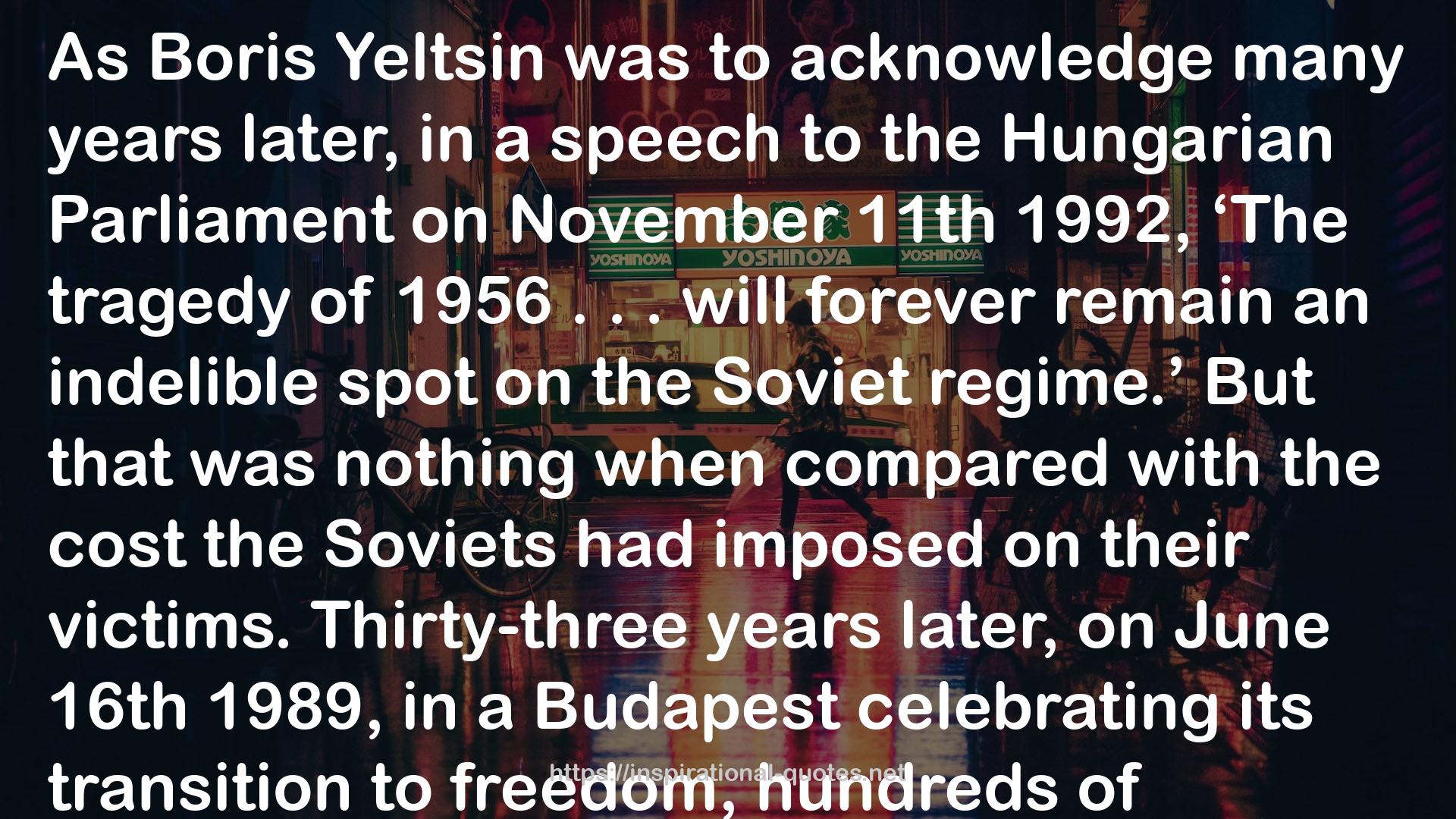" As Boris Yeltsin was to acknowledge many years later, in a speech to the Hungarian Parliament on November 11th 1992, ‘The tragedy of 1956 . . . will forever remain an indelible spot on the Soviet regime.’ But that was nothing when compared with the cost the Soviets had imposed on their victims. Thirty-three years later, on June 16th 1989, in a Budapest celebrating its transition to freedom, hundreds of thousands of Hungarians took part in another ceremonial reburial: this time of Imre Nagy and his colleagues. One of the speakers over Nagy’s grave was the young Viktor Orbán, future Prime Minister of his country. ‘It is a direct consequence of the bloody repression of the Revolution,’ he told the assembled crowds, ‘that we have had to assume the burden of insolvency and reach for a way out of the Asiatic dead end into which we were pushed. Truly, the Hungarian Socialist Workers’ Party robbed today’s youth of its future in 1956. "
― Tony Judt , Postwar: A History of Europe Since 1945
